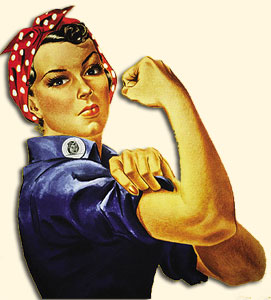Canadians pride themselves on their politeness. Canadians are even stereotyped as being very polite folk and after trotting a little to different places, I would agree that yes, initial impressions tell me that as a generalisation, Canadians are very nice, open and willing to help out where possible.
I’m questioning what exactly is meant by “polite”, though. One example we like to bring out about our polite manners is our love of lines. Canadians line up. Pushing and shoving each other is plain rude (though usually no one will tell you that because it’s also rude to tell someone they’re being rude). Does this mean we think that other people in other countries who don’t have the culture of lining up are rude? By our Canadian standards, perhaps. By others’ standards, we might be excessively timid.
Take a different example: While I was in Stratford-upon-Avon, England, we visited a little tea house that served clotted cream teas. (These are heavenly, in my opinion. My mouth waters just to think of them particularly since I’m rather hungry right now and have nothing to look forward to except my own cooking.) My Canadian friends and I sat down to tea — and after a while, I realised the only sounds I could hear were us, even though local patrons were there too. One little lady who had been enjoying her tea in peace and quiet before we came was pursing her lips and looking quite displeased, to say the least, particularly when the topic of discussion somehow moved towards how we were much too full and how we had to undo our belts. And we began loosening them right there at the table. Ironically? Belt-undoers were joking about how Canadians are really polite — except it was the kind of joke the teller believes.
Now I know that these are not the best examples to illustrate my point. I have never seriously heard people complain about how Canadians line up and how they are being timid; I have heard quite the opposite: “Why can’t we line up here like they do there?” Rather, because we do something some way here, there’s a danger of writing other people’s ways of doing them as “rude” or “impolite” instead of “different”. Likewise, while it may be fine to make jokes about overeating and the washroom in a loud, informal setting with friends, perhaps it just isn’t appropriate somewhere else. Just because we do things one way here doesn’t mean it’s the proper etiquette elsewhere.
Perhaps most simply put, Canadians (or Vancouverites anyway) say “How’s it going?” by way of greeting. I was warned, but still had trouble dealing with the fact that people don’t actually mean they want to know how you are; it’s just a way of saying hi. Where I grew up, you didn’t ask “How are you?” unless you meant it; to ask and not mean it just seemed insincere to me. (In fact, I’ve found out people say a lot of things they don’t mean, including variations of, “We should grab a coffee/hang out sometime.”) To Canadians, “How’s it going?” is polite; to me, it is not.
But then, this is now me judging Canada by my standards of politeness, which is hypocritical, is it not?
Culture shock is the meeting of present circumstances in one culture with the past experiences of another culture.
Maybe we are not as polite as we think we are. Maybe if we are more careful and realise that other cultures view our ways of doing things differently, we won’t make social faux pas without even realising them.
Meanwhile, I get around my past/present discomfort with “How’s it going?” by greeting other people first: “Morning!”



